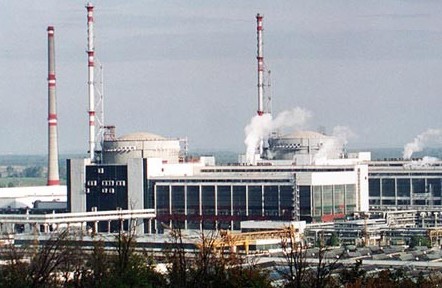BULGARIA FORMS WORKING GROUP TO BUILT 7TH REACTOR AT KOZLODUY NPP
The working group will be meeting next week in order to draft a road map for the project, explained Valentin Nikolov, who will be chairing the group
Deputy economy and energy minister Valentin Nikolov
Bulgaria's government will be setting up a working group to be in charge of the construction of Unit 7 at the country's only existing nuclear power plant in the Danube town of Kozloduy. This has been made clear by Deputy Economy and Energy Minister Valentin Nikolov, who spoke after the opening of an energy forum for Bulgaria and Romania, as cited by BNR.
Bulgaria's Borisov Cabinet decided to start the construction of a new reactor in Kozloduy after it gave up on the construction of what was supposed to be the country's second nuclear power plant in Belene. Thus, the Bulgarian government decided to install in Kozloduy the 1000 MW reactor that the Russian state company Atomstroyexport already produced for the Belene NPP.
The working group for Unit 7 of the Kozloduy NPP will be meeting next week in order to draft a road map for the project. It is to set up a project company that will be fully owned by the Kozloduy NPP, and will be selected a construction spot on the territory of the existing NPP, explained Nikolov, who will be chairing the working group, Sofia News Agency specified.
Nikolov refuted the allegations that Russia is claiming some USD 1 B in compensations from Bulgaria over the termination of the Belene NPP project. "There are no claims on part of Russia that have been declared formally. We have signed an agreement between our technical and financial experts [for the installment of the new reactor in Kozloduy]. There has been no mention of USD 1 B," he stated.
Bulgaria's only operational nuclear power plant in the Danube town of Kozloduy has started the first phase of the procedure to extend the life of its two 1000 MW reactors by 20 years. After the installation of Unit 6, the newest one, in 1991, the Kozloduy NPP reached a total production capacity of 3 760 MW. Currently, however, the capacity of the plant is down to 2000 MW after Bulgaria shut down the 440 MW reactors 1-4 in 2002 and 2006 at the insistence of the EU as part of the country's EU accession negotiations.
Unit 5's life is to end in 2037, and Unit 6's – in 2019, but these dates are to be pushed back by 20 years if the program is implemented successfully.






